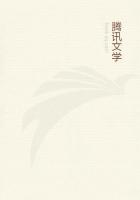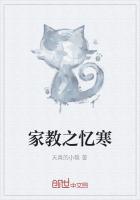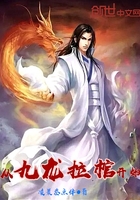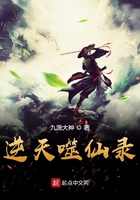In college a professor further sparked this passionate curiosity about the essence of others and, by his example, transmuted it into a deep concern, a sense of responsibility that sprang not from stern Calvinistic principles but from awareness of all I received and must repay with gladness.
I believe this acceptance, this tenderness one has for others, is impossible without an acceptance of self. Just when or where I learned that the full quota of human weakness and strength was the common property of each of us, I don' t know. But somewhere in my late twenties I grew able to admit my own drives and, rid of the anguished necessity of recostuming them, I was free to face them, and recognize that they were neither unique nor uncontrollable.
The rich and happy life I lead every day brings new witness to the validity2 of my own philosophy for me. Certainly it works in marriage. Any real marriage is a constant understanding and acceptance, coupled with mutual responsibility for one another' s happiness. Each day I go out strengthened by the knowledge I am loved and love.
In the mother-child relationship, those same two forces apply. Words are useless to describe my efforts to know my own children. But my great debt to them for their understanding of me is one I have often failed to repay. How can I overvalue a youngster with the imagination and empathy and thoughtfulness to always phone when a late arrival might cause worry...to always know how to reassure? How can I repay the one who dashed into adulthood far too young but has carried all of its burden with a firm, joyous spirit?
My job itself is a reaffirmation3 of that by which I live. Very early in my working life, I was a small cog in a big firm. Emerging from a tiny job, I found a strange frightening world. Superficially everyone was friendly, but beneath the surface were raging suspicion, distrust, the hand ever ready to ward off or deliver the knife in the back. For years I thought I was in a world of monstrous people. Then I began to know the company' s president. What he had been I have no way of knowing. But at seventy he was suspicious4, distrusting, sure that no one was telling him the truth; he had developed a technique of pitting all of us against each other. Able to see the distortion he caused, I youthfully declared if I ever ran a business, it would be on the reverse principle.
For the last two years I have had that opportunity, and had the job of watching people widely different people, too―learn to understand each other, accept each other, feel mutually responsible.
My trials and errors have really synthesized into one great belief which is that I am not alone in my desire to reach my fellow man. I believe the human race is inherently co-operative and concerned about its brother.
生活中的我扮演着四个角色——妻子、母亲、员工及社会的一员。没错,角色各不相同,但它们之间的衔接很紧密,这就归功于两种主要的支配力量:一是尝试去发现、理解并接受他人;二是相信自己应对他人尽责。第一种力量起源于我儿时与父亲“出演”莎士比亚戏剧的时候。无论是哈姆雷特沉思时的独白、麦克白夫人的梦呓,还是伍思里主教的自我剖析,父亲都不允许我死记硬背,而是从有趣的游戏中教我理解诗句背后人物的内心活动。
大学时代,一位教授的亲身教诲,进一步加强了我对他人本质的强烈好奇心。他让我懂得如何将这种强烈的好奇心转变为对他人的关爱与尽责。这种责任心是源于对我所有知识的欣然回报,而并非基于卡尔文教派的严格信条。
我相信,人如果无法接受自己,就不可能接受并善待他人。我了解到我们每个人都有长处与短处,至于这种了解始于何时何地,我已无从知晓。但是,在近30岁时,我学会了对内心的冲动予以承认,而非痛苦地掩饰。我轻松地面对它们,因为它们既非我独有,也并非难以控制。
每一天,我都生活得充实而快乐,这便是对我人生哲学肯定的证明。这种理念自然也适用于婚姻生活。任何真正的婚姻都是基于夫妻间不断地相互理解与接受,彼此承担起让对方幸福的责任。每天外出,当知道自己的爱有所回报时,我就会充满力量。
在母子关系中,这两种力量也发挥着重要的作用。为了理解孩子,我所做出的努力是无法用言语来形容的。然而内疚的是,他们对我的理解常常让我无以为报。当母亲迟迟未归时,是怎样的想象、心心相系与体贴,让孩子担忧并一直打电话确认她的安危?当稚嫩的孩子坚定而快乐地承担起成人的责任时,我又如何予以回报?
在工作中,我的人生哲学也再次得到肯定。在早期的工作生涯中,我不过是大公司的一个无名小卒。从低微的职位晋升起来时,我发现公司是个怪异恐怖的世界。每个人表面上看起来都非常友好,但背地里互相猜忌,不予信任,既害怕被别人暗箭中伤,又想伺机捅人一刀。多年来,我感觉自己仿佛生活在魔鬼的世界中。后来,我开始明白这一切全是公司总裁所为。我不知道他从前为人怎样,但年已七旬的他疑心重重,不信任任何人,总觉得没有人对他说实话。于是,他便采取手段使员工之间相互争斗。年轻的我看清了公司混乱的原因,便下定决心,将来一定要用相反的原则来管理自己的公司。
两年前,我终于有机会自立门户,从事可以观察人的工作。我也看到许多人学会互相理解、接受并为对方尽责。
我的尝试与成败得失最终融合为一个坚定的信仰,那就是所有的人都渴望理解并接受他人。我相信,合作与关爱他人正是人类的本性。
愤怒的代价
Keep Your Cool
佚名 / Anonymous
Everyone would have heard the famous phrase "Anger is one short of Danger". It is an age-old adage, but it is time tested and still holds true. Things said or done during anger have created havoc with a lot of people and things. The tightly packed bag of mental frustration erupts into a volcano1 of anger.
But basically let' s try to analyze why one gets angry? When one is not satisfied with the way things have gone, when someone has been taken in for a ride, when one blames life for treating him very badly, and many such trivial things are the various reasons. All the frustrations get collected on one part of our mind and when we can bear it no longer, our feelings are vented in the form of a volcano of emotional tantrums2. Anger is one of the major hindrances in self-development, because it narrows our outlook. The mind looses its sense of logic and fairness, when it is accelerated by the arrogant mood of anger.
Getting angry can get your things done somewhere, but not everywhere. This is because as you grow, you yourself are responsible to clean your recycle bin of emotions and frustrations. No one has the foresight or capacity to judge what has bought you to that violent mood or what hardships you have faced. Angry people hardly go places. The closer one comes to this piece of reality, the better he will get.
The best way to counterattack anger is to imbibe3 patience in ourselves. A person with infinite patience has matured mentally, and is the bravest war-horse over the path of anger. He controlled himself every time and got away from trying circumstances using the best lifeline available. Such people are always in peace with themselves and are always enjoying life.















